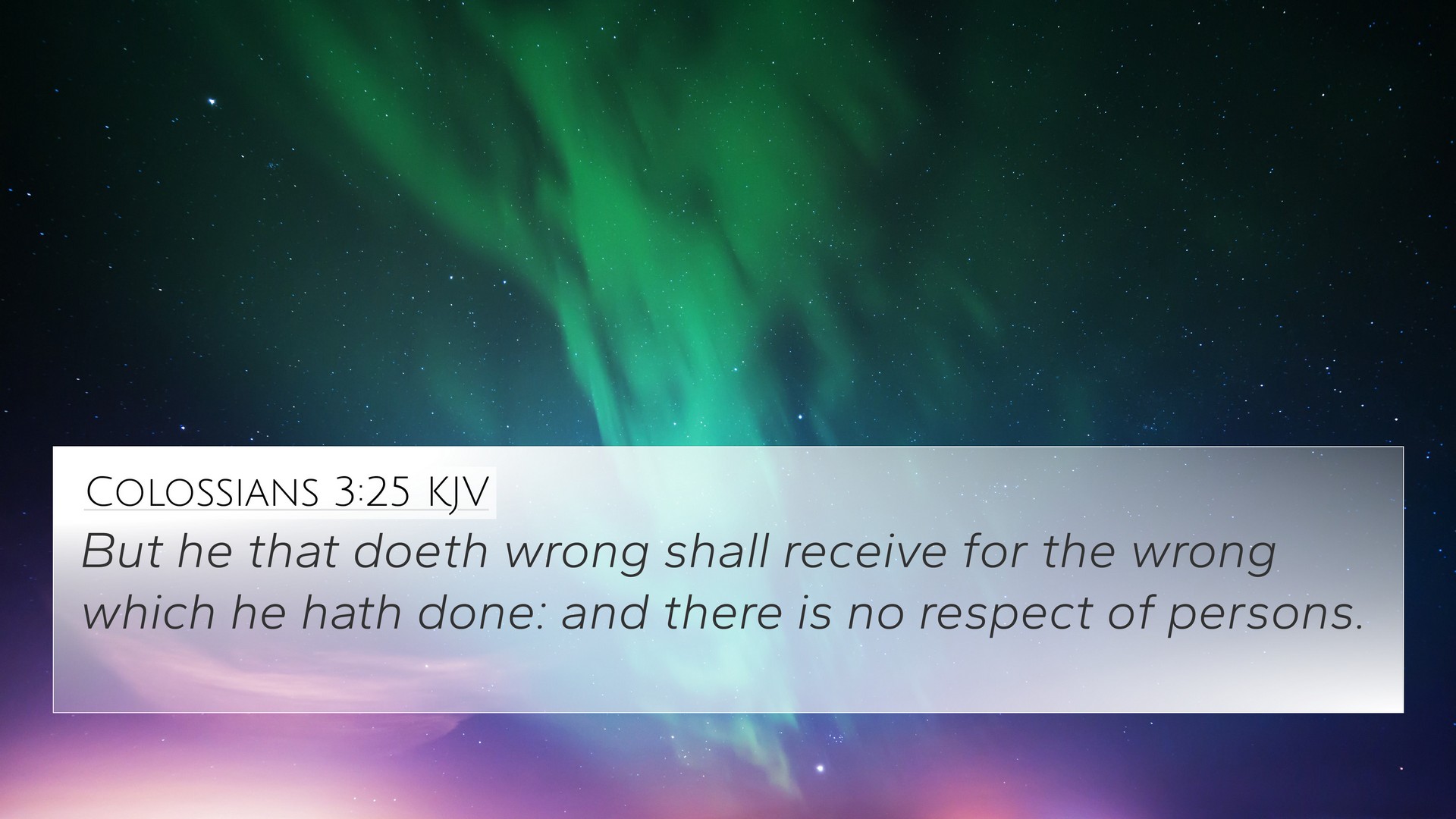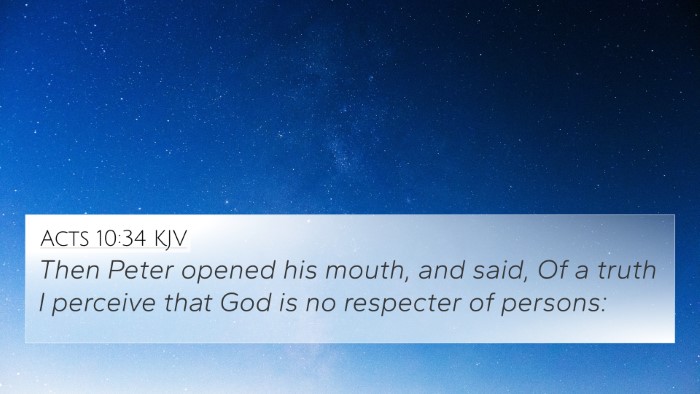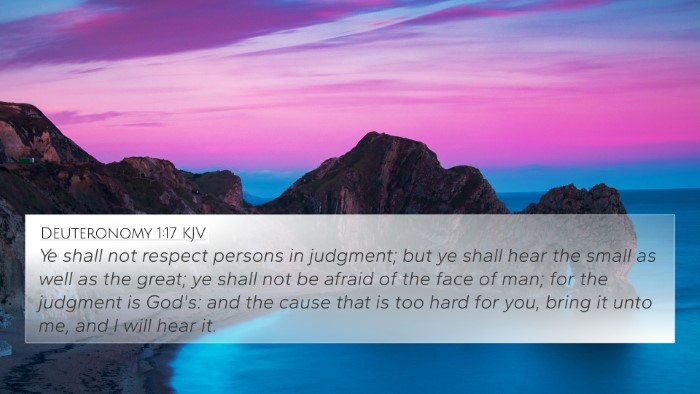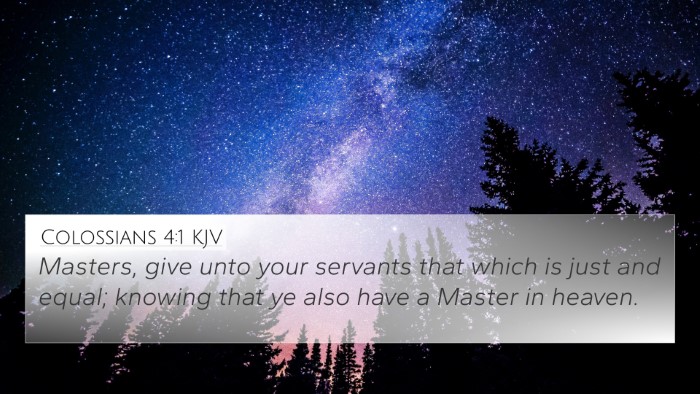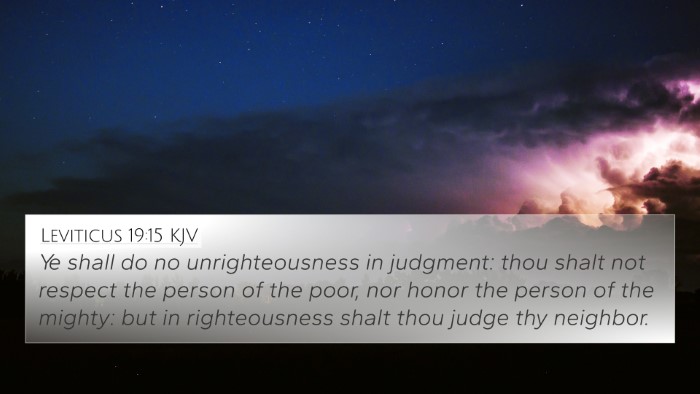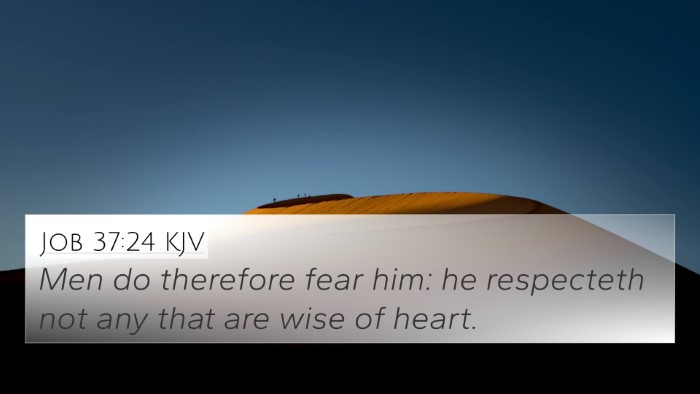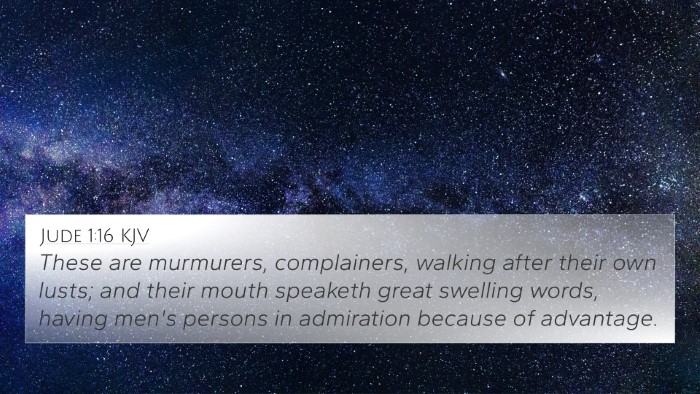Understanding Colossians 3:25
Verse: Colossians 3:25 (KJV) - "But he that doeth wrong shall receive for the wrong which he hath done: and there is no respect of persons."
Summary of Meaning
This verse from Colossians emphasizes the principle of divine justice, affirming that individuals will be held accountable for their actions regardless of their status or position. It reiterates the impartiality of God in judgment, highlighting that wrongdoing will have consequences, which provides a warning and moral guidance for the behavior of believers.
Commentary Insights
- Matthew Henry:
Henry notes that the consistency of God's justice leads to the assurance that all wrongs will be accounted for. He emphasizes that this principle applies equally to all individuals, regardless of their station in life, echoing God's impartiality.
- Albert Barnes:
Barnes interprets the verse as a reminder that God will not show favoritism. He stresses that every individual will face consequences for their actions, thus encouraging believers to conduct themselves righteously.
- Adam Clarke:
Clarke adds depth by explaining that the "wrong" refers to sins and unethical behavior, suggesting that God’s judgment is certain and emphasizes the necessity for integrity in all dealings.
Bible Verse Cross-References
This verse is interconnected with several other scripture passages that reinforce its message of accountability and the impartiality of God:
- Romans 2:6-11: Discusses God's judgment according to works, emphasizing that there is no favoritism.
- Galatians 6:7: Warns that one reaps what one sows, aligning with the principle of divine justice.
- 2 Corinthians 5:10: Affirms that everyone will stand before Christ and receive what they’ve done in their bodies.
- James 2:1-9: Explores the dangers of favoritism, underscoring God’s impartiality toward all individuals.
- Job 34:19: States that God does not regard the rich more than the poor, highlighting His impartial judgment.
- 1 Peter 1:17: Encourages believers to conduct themselves with fear, knowing they will be judged impartially by God.
- Matthew 7:2: Indicates that the measure we use will be measured to us, further emphasizing the theme of accountability.
Connections Between Bible Verses
This verse connects to themes of justice, moral conduct, and accountability found throughout Scripture. It serves as a foundational verse for understanding the continuous thread of God's justice in both the Old and New Testaments.
Linking Bible Scriptures
When exploring connections between Colossians 3:25 and other verses, consider:
- How Galatians 6:7 supports the principle of reaping what one sows.
- The relationship between James 2:1-9 and the light on how God views human hierarchies.
- Insights from Romans that illustrate God's fairness in judgment across nations and ages.
Comparative Bible Verse Analysis
In analyzing Colossians 3:25 in relation to other passages, one can explore comparative themes:
- Comparing divine justice in this verse with consequent warnings in Revelation 20:12-15 about the final judgment.
- Examining how Job 34:19's assertion aligns with the ideas presented in the New Testament about God's fairness.
Practical Application and Reflection
Believers are encouraged to reflect on their behaviors and the choices they make, understanding that they operate under God's watchful eye. There is a call to accountability in all actions, inspiring faithfulness and righteousness in both personal and communal spheres.
Conclusion
Colossians 3:25 serves as a significant reminder of the universality of God's justice and challenges believers to live with integrity. Through diligent study and cross-referencing of related scriptures, one can gain deeper insights into these critical biblical themes.
